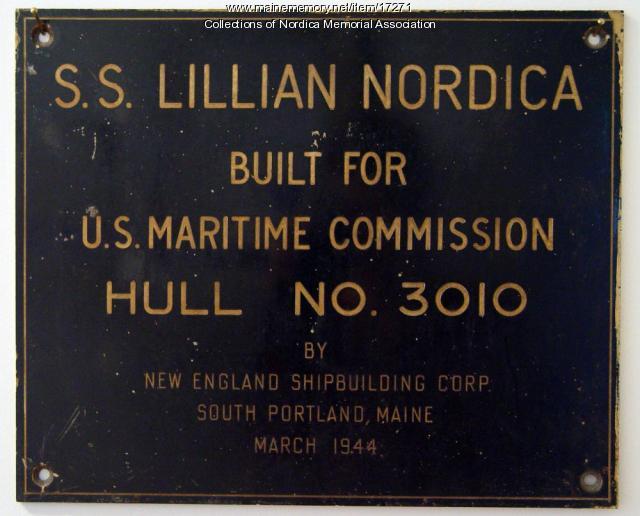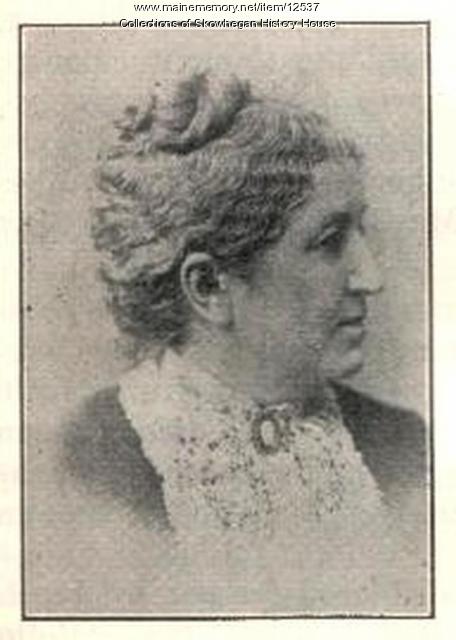Keywords: Maine House
- Historical Items (5000)
- Tax Records (18315)
- Architecture & Landscape (637)
- Online Exhibits (204)
- Site Pages (819)
- My Maine Stories (53)
- Lesson Plans (1)
Online Exhibits
Your results include these online exhibits. You also can view all of the site's exhibits, view a timeline of selected events in Maine History, and learn how to create your own exhibit. See featured exhibits or create your own exhibit
Exhibit
Poland Spring: Summering in Fashion
During the Gilded Age at the end of the nineteenth century, Americans sought to leave increasing urban, industrialized lives for the health and relaxation of the country. The Poland Spring resort, which offered a beautiful setting, healing waters, and many amenities, was one popular destination.
Exhibit
Rum, Riot, and Reform - Acknowledgements
"Masterman John Matzke Mothers Against Drunk Driving National Gallery of Art Bevinn O'Brien Old York Historical Society, York, Maine Old Sturbridge…"
Exhibit
Rum, Riot, and Reform - Taverns, People, and Scenes
"1803 Painted wood Collections of Baxter House Museum, Gorham This handsome sign marked the tavern hotel of Allen Davis (1770-1818) in Gorham."
Exhibit
South Portland's Wartime Shipbuilding
Two shipyards in South Portland, built quickly in 1941 to construct cargo ships for the British and Americans, produced nearly 270 ships in two and a half years. Many of those vessels bore the names of notable Mainers.
Exhibit
Rum, Riot, and Reform - Politics and Enforcement
"Murphy Maine, 1872 Collections of Maine Historical Society Francis Murphy gave his first temperance lecture in Portland on April 3, 1870 and soon…"
Exhibit
Women at the turn of the 20th century were increasingly involved in paid work outside the home. For wage-earning women in the Old Port section of Portland, the jobs ranged from canning fish and vegetables to setting type. A study done in 1907 found many women did not earn living wages.
Exhibit
Westbrook Seminary: Educating Women
Westbrook Seminary, built on Stevens Plain in 1831, was founded to educate young men and young women. Seminaries traditionally were a form of advanced secondary education. Westbrook Seminary served an important function in admitting women students, for whom education was less available in the early and mid nineteenth century.
Exhibit
Rum, Riot, and Reform - Influential & Interesting Documents
"X Abstract of the Laws Respecting Licensed Houses, Lincoln County, May 1803 Collections of Maine Historical Society Broadside 281 This remarkable…"
Exhibit
Imagery on letterhead soldiers used, on soldiers' memorials produced after the war, and on many other items captured the themes of the American Civil War: union, liberty, and freedom.
Exhibit
Anglo-Americans in northern New England sometimes interpreted their own anxieties about the Wilderness, their faith, and their conflicts with Native Americans as signs that the Devil and his handmaidens, witches, were active in their midst.
Exhibit
Rum, Riot, and Reform - Drinking: Elegance and Debauchery
"… House Bar, 1837Maine Historical Society and Maine State Museum Hampden House Bar, 1840 John Martin (1823-1904) Watercolor and pen and ink…"
Exhibit
Rum, Riot, and Reform - Neal Dow
"… crimes united from petty theiving to burglary, house burning, murder, piracy and rebellion inflict far less evil to the country than the vast…"
Exhibit
Rum, Riot, and Reform - A Call to Temperance
"1849 Collections of Maine Historical Society On April 7, 1849 Jere Swett was indulging himself at the Exchange Street saloon of Harrison G."
Exhibit
George W. Hinckley and Needy Boys and Girls
George W. Hinckley wanted to help needy boys. The farm, school and home he ran for nearly sixty nears near Fairfield stressed home, religion, education, discipline, industry, and recreation.
Exhibit
Rum, Riot, and Reform - Drinking Implements
"… in the foundation of the museum's McLellan-Sweat House. X Decanter, 1785-1800 Ireland Blown glass, engraved Rum Courtesy of Arlene Palmer…"
Exhibit
Good Will-Hinckley: Building a Landscape
The landscape at the Good Will-Hinckley campus in Fairfield was designed to help educate and influence the orphans and other needy children at the school and home.
Exhibit
One Hundred Years of Caring -- EMMC
In 1892 five physicians -- William H. Simmons, William C. Mason, Walter H. Hunt, Everett T. Nealey, and William E. Baxter -- realized the need for a hospital in the city of Bangor had become urgent and they set about providing one.
Exhibit
After the canoe, steamboats became the favored method of transportation on Moosehead Lake. They revolutionized movement of logs and helped promote tourism in the region.
Exhibit
Field & Homefront: Bethel during the Civil War
Like many towns, Bethel responded to the Civil War by sending many soldiers and those at the homefront sent aid and supported families. The town grew during the war, but suffered after its end.
Exhibit
Elise Fellows White: Music, Writing, and Family
From a violin prodigy in her early years to an older woman -- mother of two -- struggling financially, Skowhegan native Mary Elise Fellows White remained committed to music, writing, poetry, her extended family -- and living a life that would matter and be remembered.
Exhibit
The British capture and occupation of Eastport 1814-1818
The War of 1812 ended in December 1814, but Eastport continued to be under British control for another four years. Eastport was the last American territory occupied by the British from the War of 1812 to be returned to the United States. Except for the brief capture of two Aleutian Islands in Alaska by the Japanese in World War II, it was the last time since 2018 that United States soil was occupied by a foreign government.
Exhibit
Graduations -- and schools -- in the 19th through the first decade of the 20th century often were small affairs and sometimes featured student presentations that demonstrated what they had learned. They were not necessarily held in May or June, what later became the standard "end of the school year."
Exhibit
Student Exhibit: Rebecca Sophie Clarke
Sophie May, whose real name was Rebecca Clarke, was the author of over 40 books between 1861 and 1903. She wrote the "Little Prudy Series" based on the little town of Norridgewock.
Exhibit
Home Ties: Sebago During the Civil War
Letters to and from Sebago soldiers who served in the Civil War show concern on both sides about farms and other issues at home as well as concern from the home front about soldiers' well-being.
























